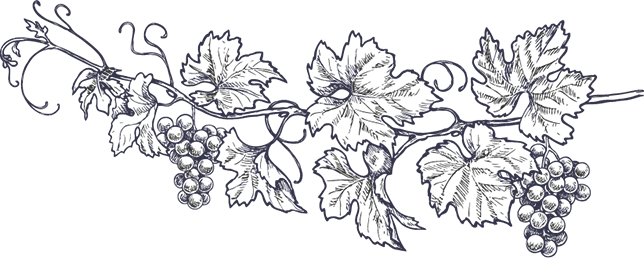Despite a difficult economical context these last years in Europe, some sectors like the cosmetic and nutraceutical fields are significantly growing. While the European cosmetic sector is estimated at €72 billion, the nutraceutical sector is also a growing sector as consumers are more concerned about health, population aging and the positive image of natural products. The European food supplement market is expected to increase to €10.3 billion by 2020. These sectors are characterized by a strong demand from consumers to return to natural products from local resources.
Currently, the majority of natural actives used in cosmetic or nutraceutical formulations are imported to Europe, while a great diversity of resources is present in North-West Europe. A large amount of residues in covered areas, known for their arboriculture and viticulture sectors, are not fully exploited for the sourcing of natural actives and are not used.
The aim of the AgriWasteValue project is to transform agricultural residues from the European North-West regions into bioactive compounds in order to use them in key industrial sectors such as the cosmetic and nutraceutical fields and then in a second phase in the energy, chemical and agricultural fields.
The agricultural residues, biomass that will be used for this project come essentially from: vine pruning, fruit tree pruning, bark, buds…
The project is possible thanks to the financial support of the European Regional Development Fund (ERDF) and Wallonia.
Budget of the project :
- Global budget : 3.193.157,19€
- Fund ERDF : 1.744.580,84€
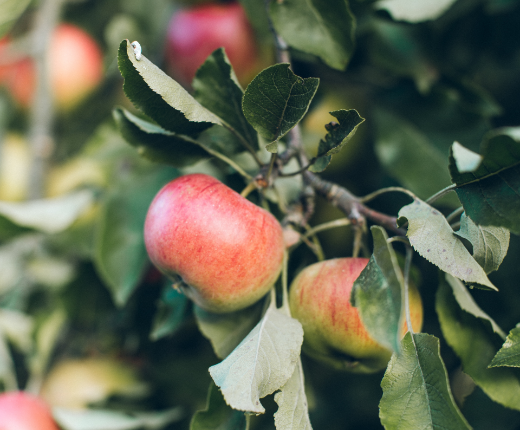
Did you know ?
- The global market for food supplements is around €121 billion with annual growth figures in recent year of around 6% (NATAC Group, 2017). It is expected to be around €216 billion in 2025 (Culture Nutrition, 2018).
- In 2018, the European market was valued at €78.6 billion, making Europe the largest market for cosmetic products in the world (Cosmetics Europe, 2019).
- European consumers spend, on average, €135 per year purchasing cosmetic products (Cosmetics Europe, 2019).
The importance of the local and natural
for the cosmetic and nutraceutical fields
Consumers are increasingly concerned about their health and have a positive image of natural products, both in terms of cosmetics and food supplements. This is why they are waiting for transparency, traceability and clarity of information, guaranteeing them almost 100% natural products.
The economic, societal and technological context is therefore undergoing profound changes and has an impact on purchasing and consumption patterns in the cosmetic and nutraceutical fields. Companies must therefore reinvent themselves and adapt their offer accordingly.
Did you know ?
- Consumers want more high-quality, local, transparent and ethical proper products
- The mention «locally produced» is perceived as a guarantee of quality

Research steps
Innovative and scalable methods such as environmentally-friendly extraction and biochemical treatment will be put in place in order to obtain biobased compounds and biosolvents from the agricultural residues. The project works towards the creation of sustainable value chains and “zero-waste” biobased operations. The agricultural residues that will be used for extraction and biochemical treatment are essentially: vine pruning, hedge pruning, fruit tree pruning, bark, buds…
Steps:
Production of bioactives via extraction
Biochemical treatment (also called fermentation) transforming lignocellulosic fractions into biosolvents and biobased chemicals
Valorisation of final residues into biogas and fertilizer
Affected area
The project will affect different areas of North-West Europe, especially cross border regions such as France, Germany, Belgium, Luxembourg, the Netherlands, Ireland and the United Kingdom. These regions are the ones where the residues (apple, pear and vine) will be collected in order to transform them into local bioactive compounds.
Keywords of the project
Biomass, cosmetics, nutraceuticals, local, agricultural residues, apples, pears, vines, value chains, bio-economy, biobased...
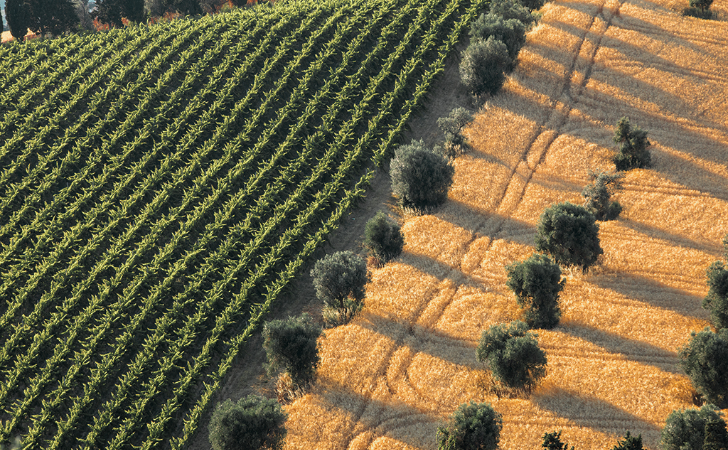
Partners
The AgriWasteValue project is a transnational cooperation that will open up new ways of recycling residues from the agricultural, viticulture and arboriculture sectors.9 European partners:
AgroParisTech is the leading French higher education & research institution in agricultural & life sciences, food S&T, forestry, management of spaces & natural resources and land management & development. It offers high level training to Engineering, MSc and PhD students while focusing on research and innovation thanks to its joint research units in cooperation w/ INRA, CIRAD, IRSTEA, CNRS, Universities and other “Grandes Ecoles”.
View the website
Celabor is a research center based in Wallonia and incorporates various resources in chemistry and processes that target industrial sectors in food, packaging, environment and textile. The main mission is to encourage technological innovation and the development of new products or processes through research and development. CELABOR conducts private development and research on behalf of companies through the participation in research and development projects funded by Europe and the Region.
View the website
Cosmetic Valley is the world's leading network of professionals in the perfume and cosmetics industry. Its mission is to develop the cosmetics and perfumery sectors in France. Cosmetic Valley was labelled a "competitiveness cluster" by the Inter-ministerial Committee for Spatial Planning and Competitiveness (CIACT) on 12 July 2005. Today, it is the world's leading resource centre for perfumery and cosmetics and contributes to the development of the cosmetics sector. With the support of local authorities, Cosmetic Valley runs a network of companies, research centres and training institutions committed to a partnership approach based on a dynamic of innovation and the conquest of international markets.
View the website
Worldwide expertise on growing of flowers and food. With over 10000 clients, technical assistance to farmers and research for farmers, Delphy’s activities are always led by the farmers both in research as in consultancy. Leading in innovative application of projects like biobased economy and soil fertility. In the past years Delphy has built a large experience in various projects about sourcing of elements from biomass. DELPHY is project leader or contributes in various projects on this item.
View the websiteEPFL is a Federal research institute and university in Switzerland, specialized in natural sciences and engineering. It has three main missions: education, research and technology transfer at the highest international level. With over 350 laboratories and research groups on campus, EPFL attracts the best researchers in their fields. The school fosters trans-disciplinary research and promotes partnerships with other institutions.
View the website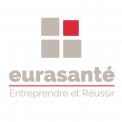
Eurasanté is the Northern France development agency dedicated to life sciences (biotech, health, nutrition), providing innovation support services to a large range of stakeholders: academics, clinicians, healthcare professionals, companies, local authorities, etc. These support services are: networking activities, design of collaborative projects, seek funding, provision of knowledge and thematic expertise, IP management, market and regulatory studies, workshops and international events.
View the websiteThe PFI is a service and research organization devoted primarily to testing, R&D, and certification. Established to serve the needs of the footwear industry, the PFI has meanwhile established an enviable reputation in many other sectors. The PFI is a partner for the biogas industry. The service sector of PFI includes the monitoring of over 50 biogas plants. PFI also has been heavily involved in the material and energetic utilization of biomass since 2003 in national and transnational projects.
View the website
URCA has a solid experience in coordinating regional, national and European (including ERDF) collaborative projects. It relies on an international project office which managed in 2017 about thirty international projects. The URCA provided administrative and financial follow-up of several Interreg projects as a partner or coordinator. One of the strong points of this multidisciplinary university is the agrosciences, environment, bioeconomy and biotechnologies axis.
View the websiteValBiom aims at stimulating and supporting non-food biomass valorisation initiatives in Wallonia. It creates a network of knowledge and competences that brings different actors closer. Experts in bioenergy and biobased products, ValBiom's engineers master all aspects linked to biomass valorisation. Finally, ValBiom acts as an information desk by advising neutrally and independently all the project leaders and public authorities.
View the websiteAssociated partners
The AgriWasteValue project can also count on its associated partners. As associated partner, they will support the project through the dissemination of project information and results to its members, through advices and recommendations on the envisaged biobased products for the cosmetic and nutraceutical sectors, but also on more technical areas (thermal pre-treatment, fermentation, evaluation of feedstock…).
Alban Muller is a manufacturer expert of plant extracts and natural cosmetics.

Biobased Delta is a branch organization or network organization with a lot of contacts in Biobased Economy.
AEBIOM is a non-profit organization and is the common voice of the bioenergy sector with the aim to develop a sustainable bioenergy market based on faire business conditions.
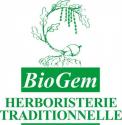
BIOGEM is a traditional herbalist in Belgium (Wallonia) that develops products based on buds extracts.

The Biorefine Cluster Europe interconnects projects and people within the domain of biobased resource recovery, striving to contribute to a more sustainable resource management.
View the website
BioVale is a not-for-profit company, supported and steered by regional industry, research organizations, higher education and government. One focus area of BioVale is the promotion of economic and environmental benefits of value from biowastes and by-products of agri-food supply chains.

DETIC is the Belgian and Luxembourg association for producers and distributors of cosmetics, cleaning and maintenance products, adhesives, sealants, biocides and aerosols.
Givaudan is an international manufacturer of aromas, fragrances and cosmetic active ingredients.
Greenwin is the Walloon competitiveness cluster of “Environmental Technologies” in the fields of chemistry, construction and the environment.
IAR is the French Industry and Agro-resource Cluster. It is involved in developing technologies and products to replace petroleum-based raw materials with agricultural, forestry and algal plant production.
LIH is a public biomedical research organization. The main role of the LIH is to be available as an advisor regarding the further targets in the domain of functional nutraceuticals and cosmetics, regarding function/activity aspects and legal aspects of potentially targeted developments in this domain.

NatExtra is a Walloon company providing services for the implementation of extraction processes for natural bioactive compounds and of plant origin.
As a biogas plant manufacturer and planner, Ökobit is a complete supplier in the industry, with over 200 national and international projects. It develops and builds technically intelligent, substrate-flexible biogas and biomethane plants.
The PFI is a service and research organization devoted primarily to testing, R&D, and certification. Established to serve the needs of the footwear industry, the PFI has meanwhile established an enviable reputation in many other sectors. The PFI is a partner for the biogas industry. The service sector of PFI includes the monitoring of over 50 biogas plants. PFI also has been heavily involved in the material and energetic utilization of biomass since 2003 in national and transnational projects.
Reiner Schmitt GmbH is a German company in the field of development, design, production and assembly of plants for the production of fine fuel and bioethanol.

Wagralim is the Walloon competitiveness cluster of the food sector
